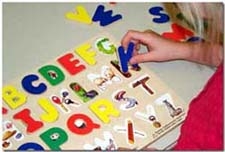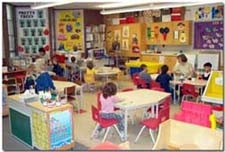Assessment and evaluation is an ongoing process focusing on improvement of program for each student. The procedures for gathering information are based on the Principles and Procedures for Assessment, Evaluation and Reporting and the expectations of the Ministry Curriculum.
Teachers provide assessment strategies within long range planning and work collaboratively to maintain continuity of expectations within grade levels. Assessment recording for individual students provides the basis for modification of program, development of programs, and reporting to students and parents. The assignment of grades, comments and outlined "next steps" on the report card is based on assessment records.
Within each class the following tools are utilized: Literacy Assessment Profiles, Developmental Reading Assessments for primary students, Reading Miscue Conferences for junior students, First Steps Writing Developmental Continuum, Mathematics Student File, Nelson Math, Arts Portfolios, Informal Teacher Designed Tests, Surveys, Quizzes, Rubrics, Performance Based Tasks, Anecdotal Notes, and Observations.
School Support Team Meetings with the Psychological Educational Consultant and Special Education Consultants are held regularly throughout the school year to discuss the progress of individual students who may be experiencing social or educational challenges. On alternate weeks the In-School Team (Special Education Resource Teacher, Classroom Teacher, Principal) meets to discuss modifications, accommodations, and adaptations in student programming. The Speech and Language Pathologist, Special Education Consultant, Special Education Itinerant Teacher, and Psychological Educational Consultant provide assessment information to assist the staff in programming. Multicultural Assessments are requested for some students who are new to Canada. Support through Social Workers, Speech Therapists, and Occupational Therapists are requested as needed.


Resources from outside the school are used to further assess students and develop program. Cassandra P.S. participates in the Primary EQAO Assessment in Grade 3 and Kindergarten Readiness to Learn Testing.
Communication with parents is a priority at Cassandra P.S. Parents are invited to curriculum based information sessions, telephoned frequently, provided with newsletters and involved in the development of the School Improvement Planning which evolves following scrutiny of the evaluation and assessment results.
Students in Grades 1 through 5 receive a formal evaluation of student progress three times per year. An annecdotal progress report in early November and a formal report card in February and June. Every parent is invited to meet with the teacher for a conference in the fall after the progress report is sent home. After each reporting period, parents or teacher may request a conference. All Junior and Senior Kindergarten Parents will meet with the teacher for a conference in by November, and if requested in February. The Junior Kindergarten students will receive a Summary Sheet in February and a Kindergarten Progress Report in June. The Senior Kindergarten children will receive a Kindergarten Progress Report in November and June.